A GrailHeart story.
The village blacksmith was
a man of steady heat and hand.
With a few quirks no one quite understood.
(more…)
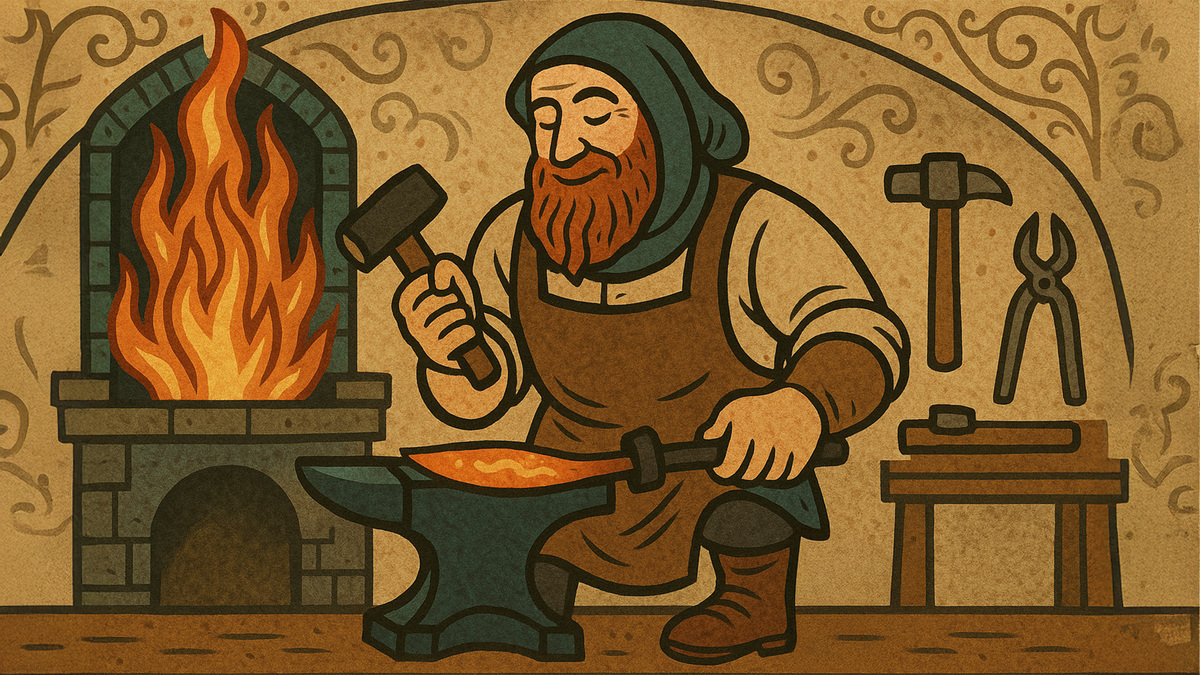
A GrailHeart story.
The village blacksmith was
a man of steady heat and hand.
With a few quirks no one quite understood.
(more…)
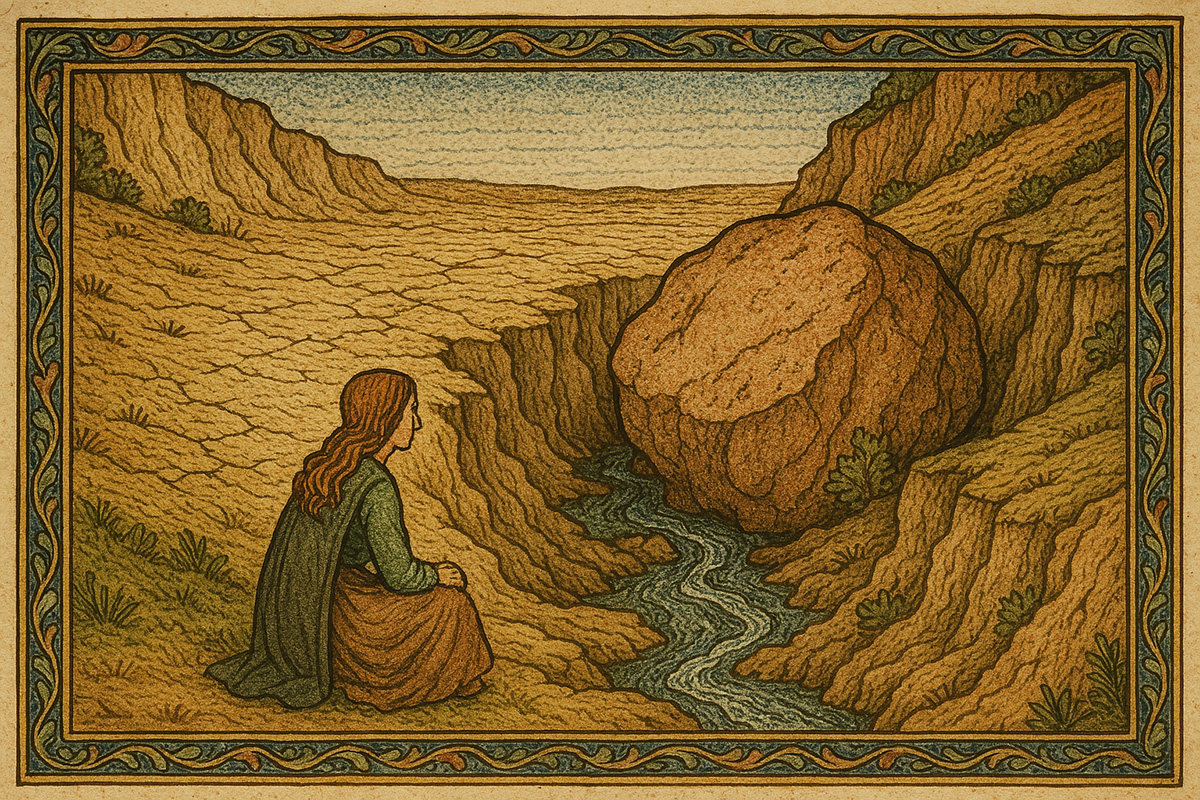
MP3 Narration with Music:
The drought had lasted longer than anyone in the village could remember. Cracked earth stretched as far as the eye could see — the fields brittle and gray. The stream—once lively and clear—was now a mere trickle, barely enough to fill cupped hands. (more…)
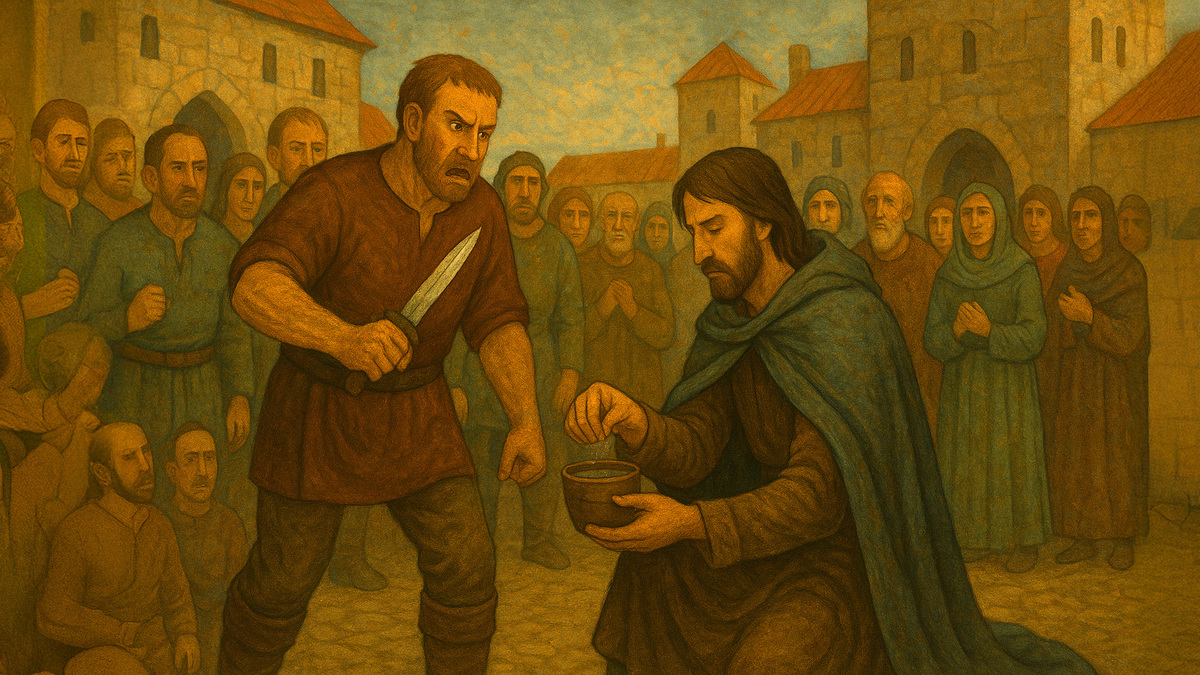
Sorin was mending fishing nets when he heard the first shouts of anger. He turned toward the square and saw Marek storming forward, fists clenched. Marek, whose rage had been boiling for weeks after his younger brother was found murdered along the road.
A crime with no culprit. Not even any clues.
And now, a foreigner had arrived. (more…)

In the small village of Elmbridge, nestled between rolling hills and dense forests, there lived a boy named Corwin. From the moment he could talk, it was clear he saw the world differently. While other children played games of chase or tended to their chores, Corwin would lie in the fields, gazing at the clouds, imagining them as floating castles or great beasts. (more…)
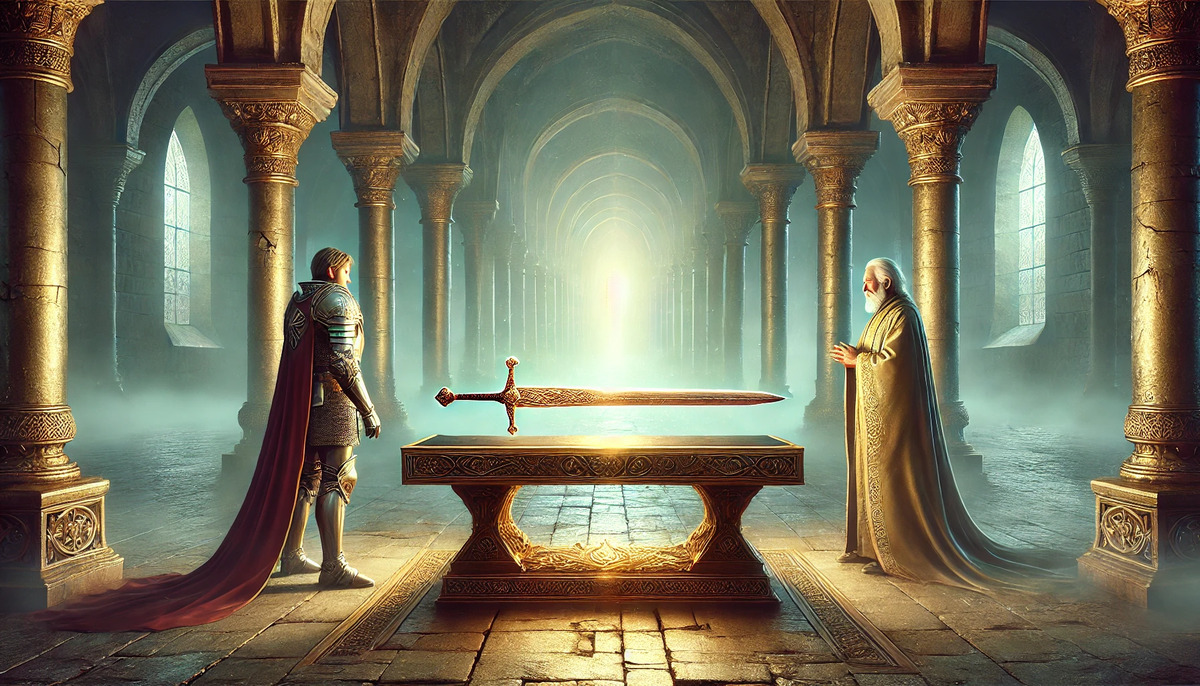
In a land cradled by rugged mountains and vast deserts, there lived a warrior named Kael. Renowned for his skill and bravery, Kael had fought in countless battles, earning him both respect and fear. Yet, despite his victories, he still wanted more. Every triumph felt hollow, every celebration fleeting. It was as though he were chasing something that was always three steps ahead of him.
One evening, as the sun dipped below the horizon and cast the world in fiery hues, a traveling bard arrived in Kael’s village. The bard spoke of a legendary sword—the Blade of Varyon—hidden deep within the Whispering Canyons. The sword was said to grant its wielder unmatched power and victory in every battle. Intrigued, Kael approached the bard after the tale. (more…)
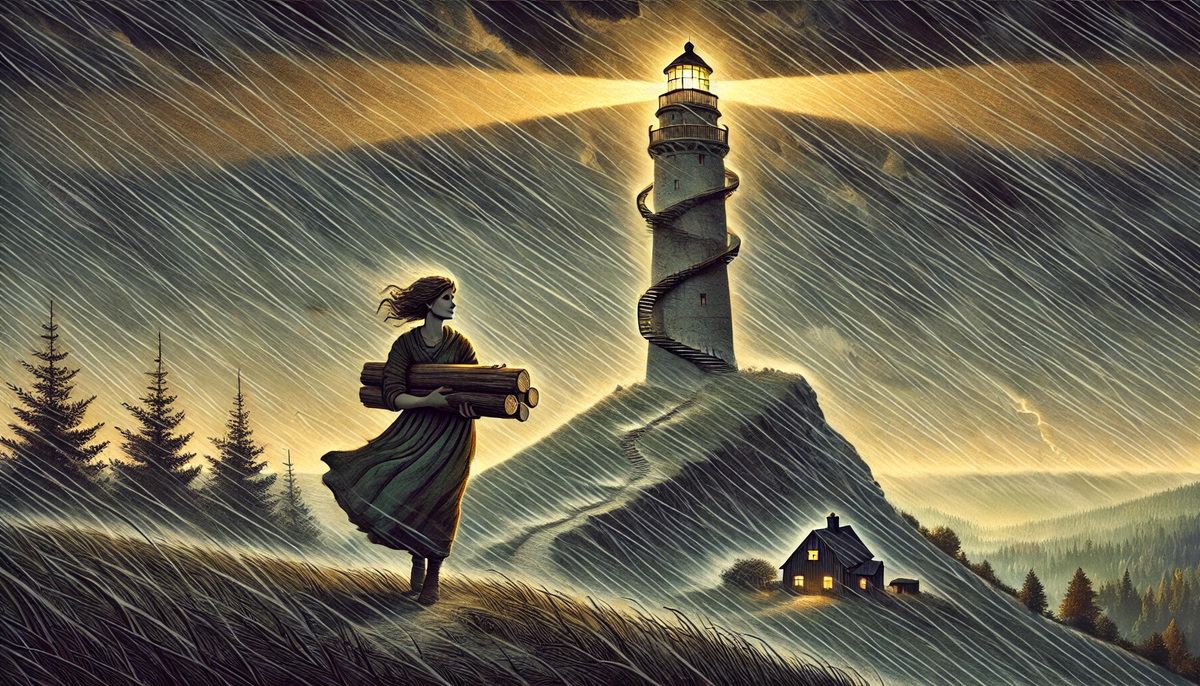
High in the windswept hills of Wrenwood, there stood a lighthouse that was unlike any other. It had no sea to guard, no ships to guide, and yet its light burned every night without fail. The people of the nearby village called it the Beacon on the Hill. Travelers passing through the hills often told of how its steady glow gave them courage to carry on through the storm-laden paths.
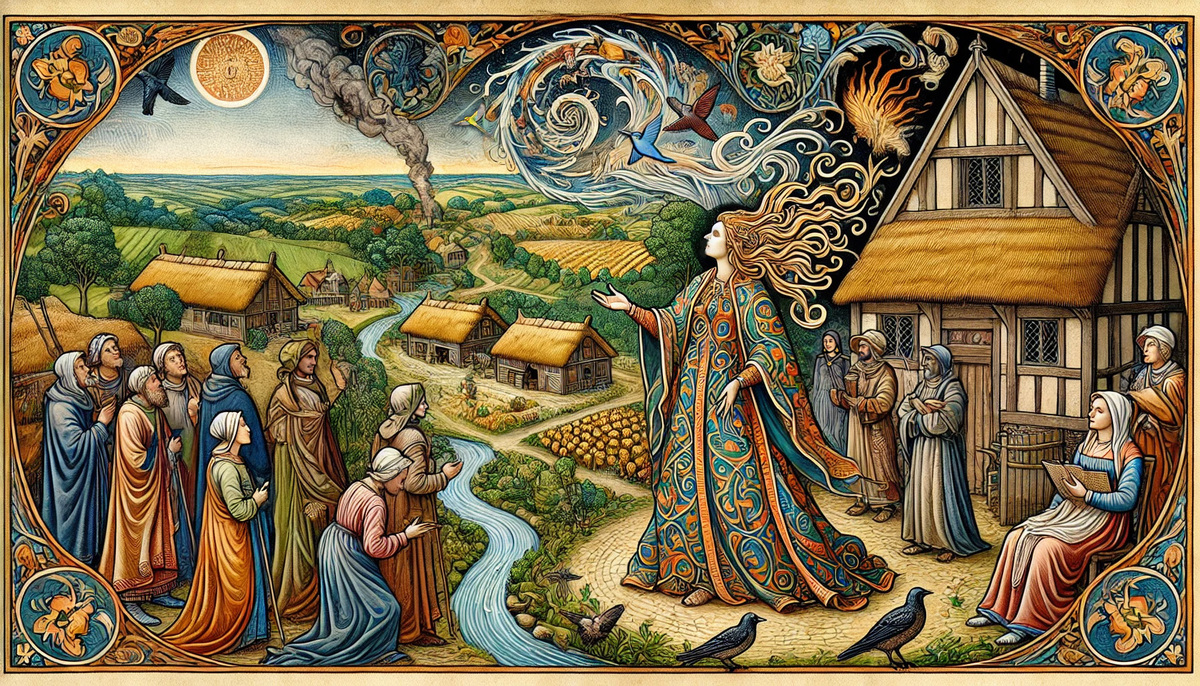
Once upon a time, in the quaint village of Hearthwick, there lived a prophetess named Elira. Known for her piercing eyes and serene demeanor, she had earned the villagers’ respect over the years for her wisdom, even though her predictions were often enigmatic. One crisp autumn morning, she stood in the town square, gazing skyward as if reading invisible signs.
“Three great events are coming,” she declared, her voice firm but gentle. “The first: fire shall consume the village. The second: a great shadow will descend upon us. And the third: the river will rise and engulf what we have built.” (more…)
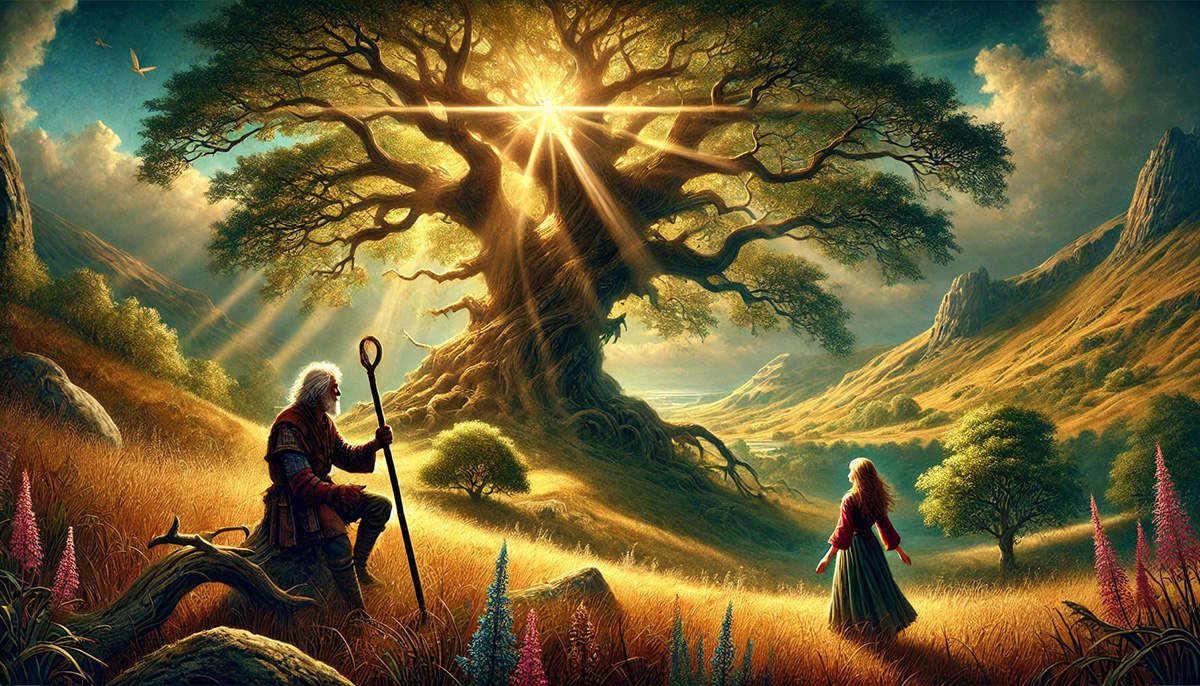

Rowan Blackwell was born into the squalor of an impoverished mining town. His father was a miner, and his mother was the daughter of an English professor. The professor offered to pay for Rowan to go to university, but his father decreed, “A Blackwell is a miner, like my father and my father’s father. And if it weren’t for us miners, them professors would be heating their classrooms with their books!” So, by day young Rowan followed his father into the mines. And by night, his mother taught him the craft of writing, spinning tales by candlelight while his father’s snores echoed through the small cabin. (more…)
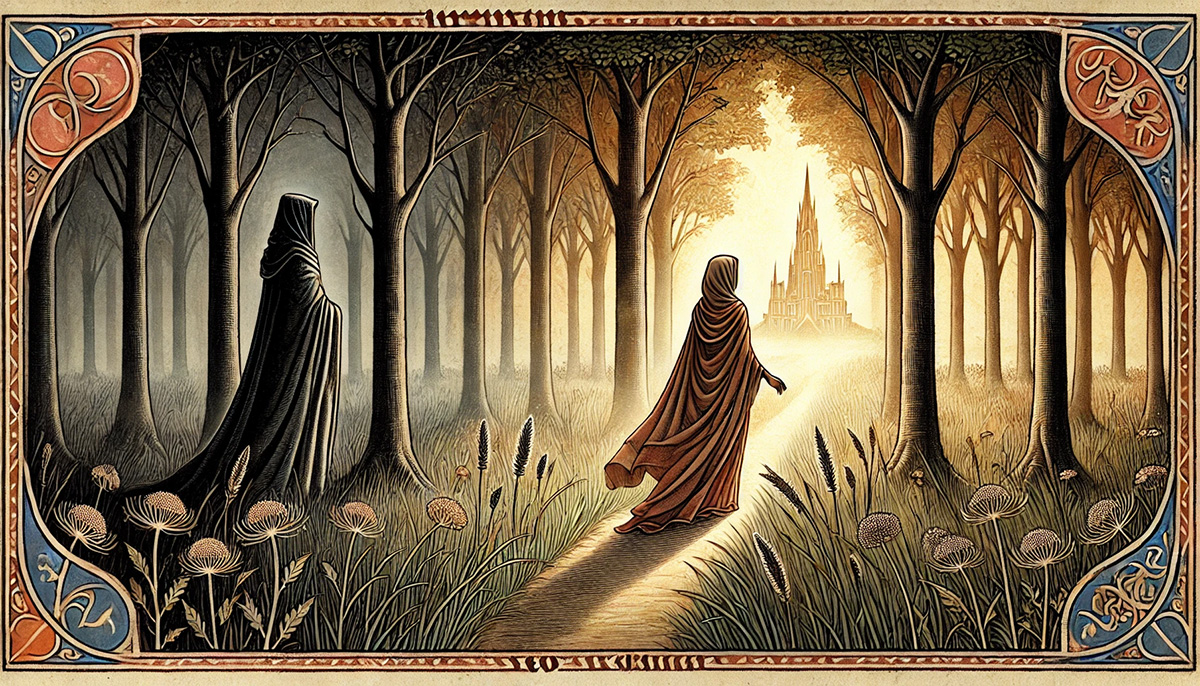
Once upon a time at GrailHeart, where seekers came to pursue wisdom and courage, a new fear settled over the community. News had arrived that a powerful figure had risen to rule the kingdom beyond the cathedral’s walls. Rumors circulated of swift changes, harsh laws, and unforeseen challenges. Although none of these changes had yet affected them, an air of dread and helplessness filled the cathedral’s corridors.
Among the seekers was Tessa, a devoted soul who had long found peace in the GrailHeart way. Yet, as the days passed, she found herself dwelling on fears of what this new ruler might bring. Her mind was crowded with thoughts of how life could become harder, how her work, her freedom, her very heart might be restricted. The weight of these imagined hardships grew, casting a shadow over even her quiet moments of reflection. (more…)